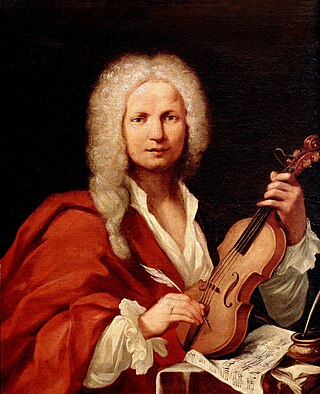
Antonio Lucio Vivaldi was an Italian composer, virtuoso violinist and impresario of Baroque music. Along with Johann Sebastian Bach and George Frideric Handel, Vivaldi ranks amongst the greatest Baroque composers and his influence during his lifetime was widespread across Europe, giving origin to many imitators and admirers. He pioneered many developments in orchestration, violin technique and programmatic music. He consolidated the emerging concerto form into a widely accepted and followed idiom.

Giovanni Battista Draghi, usually referred to as Giovanni Battista Pergolesi, was an Italian Baroque composer, violinist, and organist, leading exponent of the Baroque; he is considered one of the greatest Italian musicians of the first half of the 18th century and one of the most important representatives of the Neapolitan school.
A concerto is, from the late Baroque era, mostly understood as an instrumental composition, written for one or more soloists accompanied by an orchestra or other ensemble. The typical three-movement structure, a slow movement preceded and followed by fast movements, became a standard from the early 18th century.

A string orchestra is an orchestra consisting solely of a string section made up of the bowed strings used in Western Classical music. The instruments of such an orchestra are most often the following: the violin, which is divided into first and second violin players, the viola, the cello, and usually, but not always, the double bass.

Ridolfo Luigi Boccherini was an Italian composer and cellist of the Classical era whose music retained a courtly and galante style even while he matured somewhat apart from the major European musical centers. He is best known for a minuet from his String Quintet in E, Op. 11, No. 5, and the Cello Concerto in B flat major. The latter work was long known in the heavily altered version by German cellist and prolific arranger Friedrich Grützmacher, but has recently been restored to its original version.
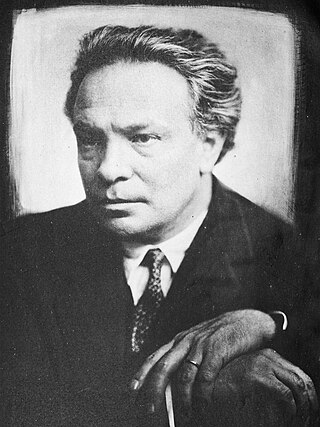
Ottorino Respighi was an Italian composer, violinist, teacher, and musicologist and one of the leading Italian composers of the early 20th century. His compositions range over operas, ballets, orchestral suites, choral songs, chamber music, and transcriptions of Italian compositions of the 16th–18th centuries, but his best known and most performed works are his three orchestral tone poems which brought him international fame: Fountains of Rome (1916), Pines of Rome (1924), and Roman Festivals (1928).
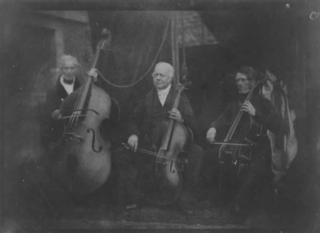
Domenico Carlo Maria Dragonetti was an Italian double bass virtuoso and composer with a 3 string double bass. He stayed for thirty years in his hometown of Venice, Italy and worked at the Opera Buffa, at the Chapel of San Marco and at the Grand Opera in Vicenza. By that time he had become notable throughout Europe and had turned down several opportunities, including offers from the Tsar of Russia. In 1794, he finally moved to London to play in the orchestra of the King's Theatre, and settled there for the remainder of his life. In fifty years, he became a prominent figure in the musical events of the English capital, performing at the concerts of the Philharmonic Society of London as well as in more private events, where he would meet the most influential persons in the country, like the Prince Consort and the Duke of Leinster. He was acquainted with composers Joseph Haydn and Ludwig van Beethoven, whom he visited on several occasions in Vienna, and to whom he showed the possibilities of the double bass as a solo instrument. His ability on the instrument also demonstrated the relevance of writing scores for the double bass in the orchestra separate from that of the cello, which was the common rule at the time. He is also remembered today for the Dragonetti bow, which he developed throughout his life.
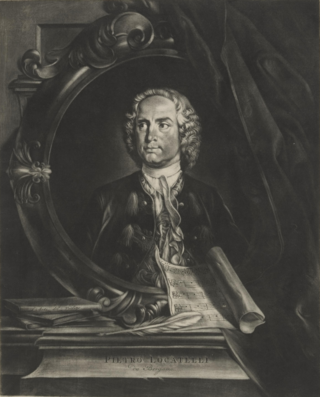
Pietro Antonio Locatelli was an Italian Baroque composer and violinist.

Giuseppe Torelli was an Italian violist, violinist, teacher, and composer of the middle Baroque era.

Robert Fuchs was an Austrian composer and music teacher. As Professor of music theory at the Vienna Conservatory, Fuchs taught many notable composers, while he was himself a highly regarded composer in his lifetime.
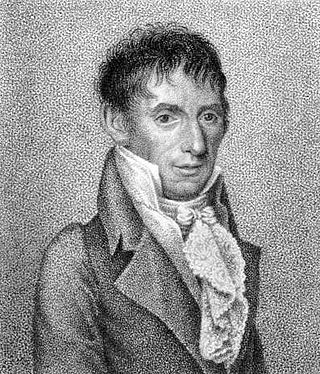
Alessandro Rolla was an Italian viola and violin virtuoso, composer, conductor and teacher. His son, Antonio Rolla, was also a violin virtuoso and composer.

Marco Enrico Bossi was an Italian organist, composer, improviser and teacher.
Jiří Družecký was a Czech composer, oboist, and timpanist.
Giovanni Battista Vitali was an Italian composer and violone player.

Marcello Abbado was an Italian pianist, composer, conductor and academic teacher. His compositions include several orchestral works, two ballets, numerous pieces for solo piano, and chamber music. As a pianist, he played in major concert halls of the world. He taught composition at several conservatories, ultimately at the Giuseppe Verdi Conservatory. In 1989 he was awarded the gold medal for Meritorious Culture and Art by the Government of Italy.
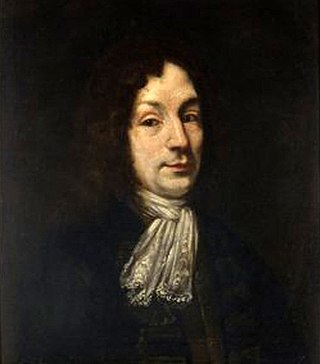
Luca Antonio Predieri was an Italian composer and violinist. A member of a prominent family of musicians, Predieri was born in Bologna and was active there from 1704. In 1737 he moved to Vienna, eventually becoming Kapellmeister to the imperial Habsburg court in 1741, a post he held for ten years. In 1765 he returned to his native city where he died two years later at the age of 78. A prolific opera composer, he was also known for his sacred music and oratorios. Although his operas were largely forgotten by the end of his own lifetime and most of their scores lost, individual arias as well some of his sacred music are still performed and recorded.
Enrico Polo was an Italian violinist, composer and pedagogue.
Joseph von Blumenthal, also known as Joseph de Blumenthal, was an Austrian violinist and violist, influential pedagogue and composer.

Guido Antonio Santórsola di Bari Bruno was a Brazilian-Uruguayan composer, violinist, violist, viola d'amore player, and conductor of Italian birth.

Ezio Bosso was an Italian composer, pianist, double bass player, and conductor. He composed film scores such as Un amore and Gabriele Salvatores' Io non ho paura, and ballets which were performed by The Royal Ballet and the San Francisco Ballet, among others. As a pianist, he released a solo album which entered the Italian charts.














